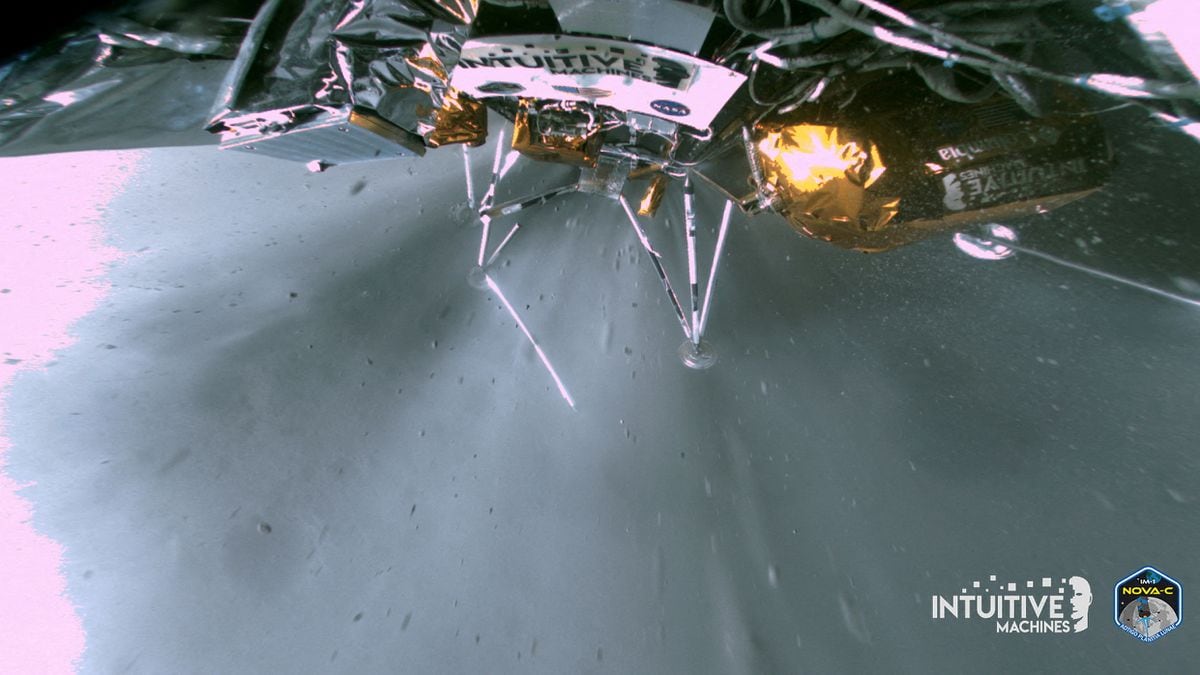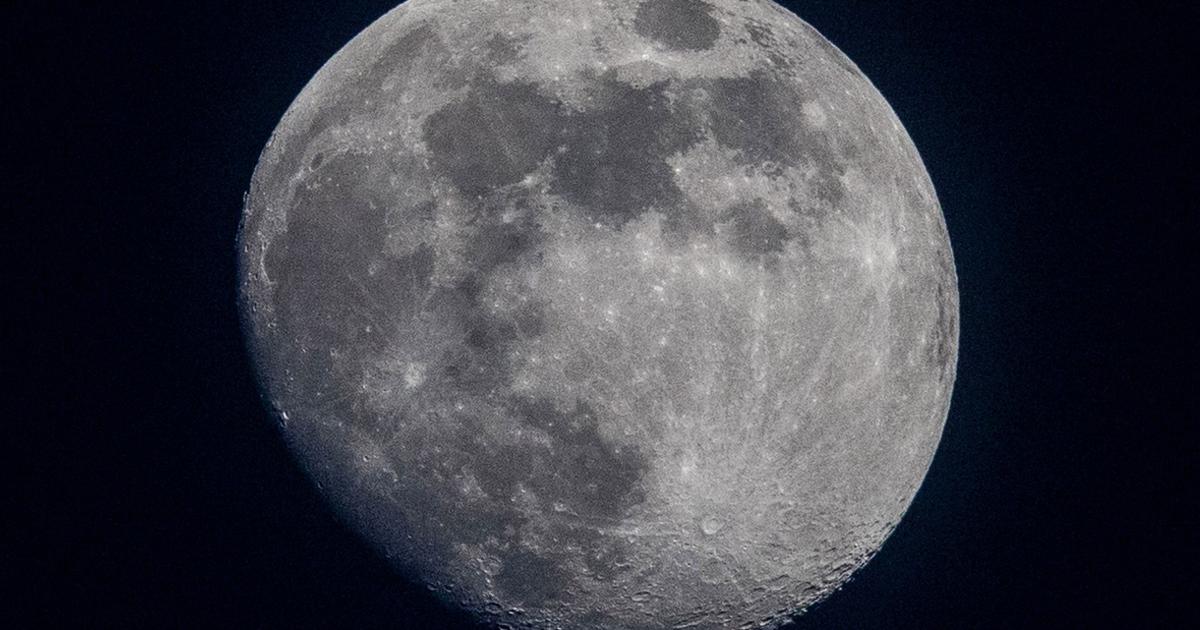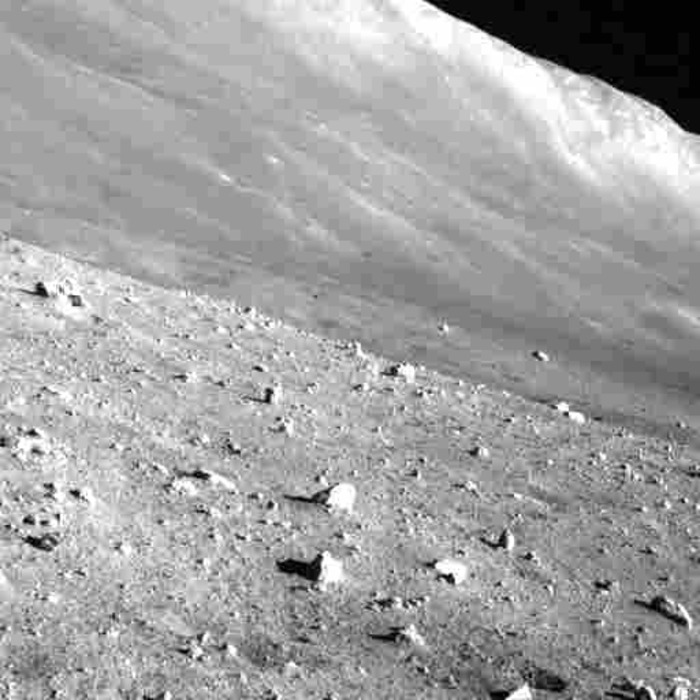Takeshi Hakamada, founder and CEO of ispace, with a model of the lunar lander "Hakuto-R". © dpa/Kyodo News via AP
The lunar lander of the Japanese company ispace apparently misjudged its own altitude – and therefore ultimately crashed on the moon.
TOKYO – When the Japanese space company ispace's moon landing failed about a month ago, there was a lot of guesswork: What had happened to the Hakuto-R lunar lander? After all, the data had looked good until the end and it was not until shortly after the planned landing time that no more data from the moon arrived on Earth. In the meantime, ispace has evaluated the data received and, according to its own information, knows what the problem was.
"During the descent, there was an unexpected behavior in the altitude measurement of the lander. The most likely reason for the lander's incorrect elevation estimate was that the software did not work as expected," the Japanese company said in a statement. The lander apparently thought that it was at the height of "zero" – i.e. the lunar surface – while it was actually still at an altitude of about five kilometers, as it was later found out.
ispace's moon landing failed – lunar lander crashed
After reaching the scheduled landing time, "Hakuto-R" continued its descent at low speed until it ran out of fuel. "At this time, the controlled descent of the lander was canceled, and it is believed that it crashed into the lunar surface in free fall," the Japanese company writes.
This presumed course of events would also fit in with the images that the US space agency Nasa has published of the moon. Images taken by the Lunar Reconnaissance Orbiter (LRO) spacecraft from the planned landing site after the failed moon landing show several pieces of debris, and experts have also identified a suspected impact crater.
Mission of "Hakuto-R": It would have been the first private moon landing
Even if the prestigious landing – it would have been the first private moon landing and Japan's first landing on the moon – did not work out, ispace is optimistic. Based on the flight data, the planned second moon mission will once again rely on a lander model from Series 1 – but improvements are to be made to the software.
ispace's next lunar missions are planned for 2024 and 2025. Until then, however, the success of the first private moon landing could be claimed by another company: The companies Astrobotic and Intuitive Machines also want to land on the moon independently of each other. Both missions could launch before the end of 2023. Astrobotic is waiting for the launch of the first "Vulcan" rocket of the United Launch Alliance, which is supposed to put the "Peregrine" lander on course for the moon. The launch of Intuitive Machines' Nova-C lunar lander is scheduled to take place on a SpaceX Falcon 9 rocket. It is currently scheduled for the third quarter of 2023 – but the launch has already been postponed several times.
But failure cannot be ruled out for future moon missions either: "Hakuto-R" was not the first moon landing to fail in recent years. Moon landings are still difficult several decades after the "Apollo" missions. (tab)




/cloudfront-eu-central-1.images.arcpublishing.com/prisa/ZLW56GYGEBEJLPNDSNPUK2NJZE.jpg)
/cloudfront-eu-central-1.images.arcpublishing.com/prisa/HYMG6UGJN5GLFOWR6YJPREOZXY.jpg)



